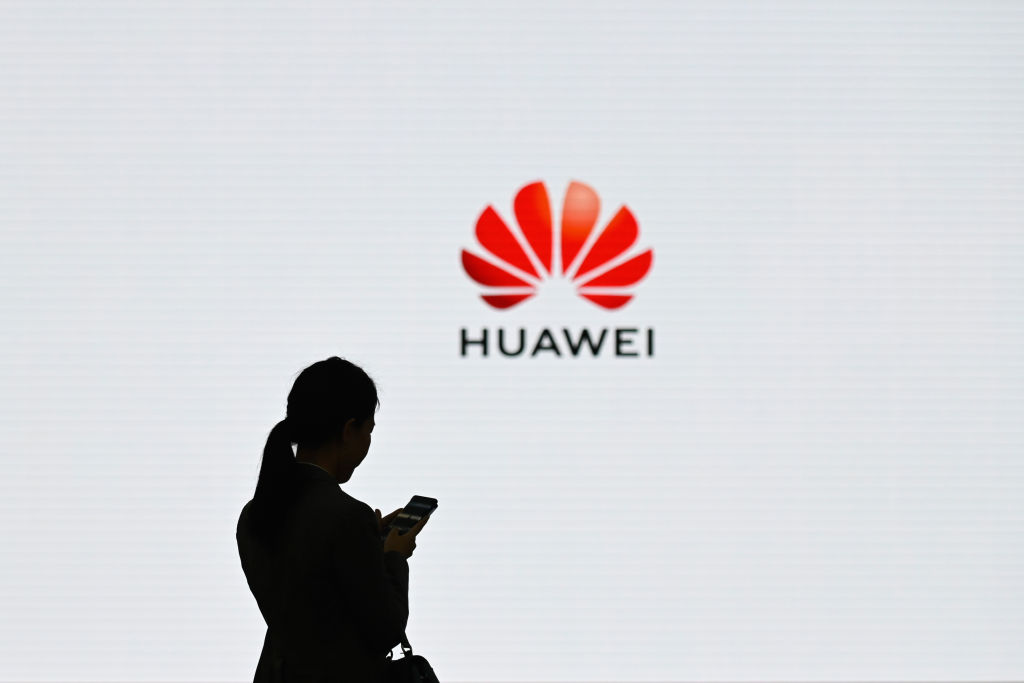Huawei could pose a challenge for Australia in Papua New Guinea
Posted By Jeffrey Wall on August 18, 2020 @ 15:10

The presence of Chinese telecommunications giant Huawei has not been challenged in Papua New Guinea as it has been in Australia, the United States, the United Kingdom and other countries.
Despite a recent embarrassing setback, reported on by the Australian Financial Review [1], Huawei has positioned itself well to benefit from the likely full or partial privatisation by the PNG government of a number of underperforming state-owned enterprises.
With a loan from Exim Bank of China, PNG commissioned Huawei to build a national data centre in Port Moresby at a total cost of around A$75 million.
PNG Communications Minister Timothy Masiu told the AFR that his government should not have to repay the loan because the data centre is a failed investment, barely works and may have to be shut down.
That will not have gone down well in Huawei’s headquarters, or in the very large and influential Chinese embassy in Port Moresby.
It’s a setback for Huawei, but it remains to been seen whether it will have an impact in PNG beyond one unhappy minister.
The company is well entrenched in the communications sector of Australia’s closest neighbour. It works closely with the state-owned Telikom PNG, an underperforming operation that will probably be first in line for full or partial sale if the cash-strapped government proceeds down that path. Huawei also provides mobile phones and other equipment to operators in the rapidly growing PNG marketplace.
Two years ago, Huawei had another setback in PNG when the Australian government stepped in to block a plan, initiated by Solomon Islands, for the company to build a submarine cable connecting the Solomons, PNG and Australia.
Australia funded the cable’s construction at a cost of around $150 million—a wise investment given the access such a project might provide.
But Huawei was not prevented from building the domestic cable network delivering internet and other telecommunications services to provincial centres around PNG.
That involved another Chinese loan that will have to be repaid. PNG Telikom is believed to have incurred massive debts to China and its capacity to repay them in a very difficult economic environment is just about zero.
In fact, the debt-trap diplomacy strategy pursued by China in developing countries is going to hit PNG hard at a time when its ability to repay Exim Bank of China and other lenders is severely restricted.
Prime Minister James Marape’s government has not yet reached an agreement with an International Monetary Fund–led consortium (which includes Australia) to cover the cost of this year’s budget shortfall. Because the economy is in dire straits, state revenue has collapsed and it’s highly likely that deficit financing for 2020, and probably for 2021 and beyond, will mean substantial cuts to basic services and the public-sector workforce.
It will almost certainly be necessary for the national government to begin the often talked about, but never delivered, sale of state-owned businesses. If that happens, Telikom PNG will be high on the list.
Huawei appears to have a long-term strategy in PNG and the data centre debacle is likely to be but a temporary setback.
The company remains well connected at the highest levels of the PNG government. There’s absolutely no debate in government, parliament or the media about the wisdom of its growing communications presence. Even in PNG’s robust social media environment, debate about its role is limited.
If Telikom PNG is privatised, Huawei will be well placed to join the race to buy it. The dilemma for Huawei might be that the larger communications provider, Digicel, which has a strong presence across the South Pacific and in PNG, might be up for sale as well.
If PNG started a serious sale of its state enterprises, the Australian government would need to watch it closely, and almost certainly get engaged. The most obvious way it could do so would be to provide financial support for Australian companies to buy strategic and viable assets in PNG, and PNG Telikom would have to be one of them.
Another important asset is Air Niugini, but given the state of international travel, buying into airlines might be a hazardous option.
The path towards any asset sales won’t be straightforward, but it might be inevitable despite limited political and community support.
If the sales do proceed, the PNG government will have to secure the highest possible prices and paying top dollar might prove a problem for Chinese entities.
Australia is going to have to play a significant role in any debt financing and structural adjustment program for PNG, though it would be led by the IMF and the World Bank.
Any PNG agreement with the IMF must include a transparent process for asset sales that flow from such a deal. Australia needs to insist on nothing less.
But we will have to be prepared to look seriously at supporting Australian companies’ bids for strategic assets—and that means providing concessional finance. Communications assets must be a priority.
Article printed from The Strategist: https://www.aspistrategist.org.au
URL to article: https://www.aspistrategist.org.au/huawei-could-pose-a-challenge-for-australia-in-papua-new-guinea/
URLs in this post:
[1] Australian Financial Review: https://www.afr.com/companies/telecommunications/debt-trap-diplomacy-png-wants-huawei-loan-cancelled-20200811-p55kmr
Click here to print.